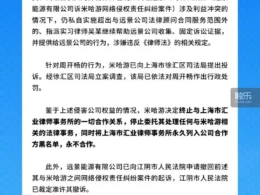Apple CEO Tim Cook Confirms AI Expansion Efforts in China
Key Takeaways:
- Apple’s Commitment: Tim Cook emphasizes Apple’s focus on entering the Chinese market with its artificial intelligence services.
- Technological Impact: Cook highlights the transformative power of AI, stating it can significantly enhance and even save lives.
- Regulatory Challenges: The rollout of Apple Intelligence in China faces ongoing regulatory hurdles despite prior preparations.
On October 18, Apple CEO Tim Cook engaged in a pivotal dialogue in Shanghai at the Global Wealth Management Forum, alongside Bai Chongen, the Chairman of the Executive Committee of the forum and Dean of Tsinghua University’s School of Economics and Management. The discourse revolved around the theme "The Boundary of Innovation in the Technology-Driven Era."
During this significant meeting, Cook revealed that Apple is actively working to penetrate the Chinese market with its AI initiatives. He emphasized that artificial intelligence holds remarkable capabilities, fundamentally altering human experiences and, in some cases, saving lives.
In recent developments, it has been reported that Apple aimed to extend its AI offerings through iOS 18.6, targeting an adaptation for the Chinese national market. However, this initiative has been stymied by ongoing regulatory challenges. With the recent updates to iOS 26, the launch of Apple’s national AI version remains uncertain, primarily due to these compliance issues.
Apple’s plan is to utilize third-party services to deliver its intelligence solutions for iPhones in China, integrating large models from key local players such as Alibaba and Baidu. The partnership will leverage Wen Xin Yiyan as the principal cloud engine, while Alibaba will oversee the content compliance for Apple’s services.
Historically, Apple Intelligence has supported the Chinese market since the release of iOS 18.5. The core technical capabilities have already been established, with the main obstacles currently being audit-related. Apple faces scrutiny not only from Chinese regulators but also from U.S. authorities concerned about the potential transfer of "advanced" technology to Baidu and Alibaba through their collaboration.
The intersection of technological innovation and regulatory compliance illustrates the complexities faced by global tech companies in navigating international markets, particularly in regions with stringent oversight. Cook’s dialogue underscores Apple’s proactive stance in adapting its offerings to align with local compliance requirements, while also focusing on the life-changing potential of AI technologies.
As Apple moves forward, the emphasis on collaboration with local entities highlights the strategic adjustments necessary to thrive in the competitive and regulated Chinese landscape. The road ahead for Apple Intelligence in China will undoubtedly require careful navigation as the company aims to balance innovation with regulatory expectations.
In conclusion, as AI continues enriching lives around the world, Apple’s commitment to bringing its advanced technologies to the Chinese market is a significant step towards realizing this goal, despite the accompanying challenges. The cooperation with major Chinese firms signifies a crucial shift towards a more integrated technological ecosystem, positioning Apple to potentially lead in AI within this key market.









